Literature among the Ruins,
19451955
New Studies in Modern Japan
Series Editors: Doug Slaymaker and William M. Tsutsui
New Studies in Modern Japan is a multidisciplinary series that consists primarily of original studies on a broad spectrum of topics dealing with Japan since the mid-nineteenth century. Additionally, the series aims to bring back into print classic works that shed new light on contemporary Japan. The series speaks to cultural studies (literature, translations, film), history, and social sciences audiences. We publish compelling works of scholarship, by both established and rising scholars in the field, on a broad arena of topics, in order to nuance our understandings of Japan and the Japanese.
Advisory Board
Michael K. Bourdaghs, University of Chicago
Rebecca Copeland, Washington University in St. Louis
Aaron Gerow, Yale University
Yoshikuni Igarashi, Vanderbilt University
Koichi Iwabuchi, Monash University
T. J. Pempel, University of California, Berkeley
Julia Adeney Thomas, University of Notre Dame
Dennis Washburn, Dartmouth College
Merry White, Boston University
Recent Titles in the Series
Japan Viewed from Interdisciplinary Perspectives: History and Prospects , edited by Yoneyuki Sugita
Single Mothers in Contemporary Japan: Motherhood, Class, and Reproductive Practice , by Aya Ezawa
Creating Japans Ground Self-Defense Force, 19452015: A Sword Well Made , by David Hunter-Chester
Rethinking Japan: The Politics of Contested Nationalism , by Arthur Stockwin and Kweku Ampiah
The Politics and Literature Debate in Postwar Japanese Criticism: 194552 , edited by Atsuko Ueda, Michael K. Bourdaghs, Richi Sakakibara, and Hirokazu Toeda
Yokohama and the Silk Trade: How Eastern Japan Became the Primary Economic Region of Japan, 18431893 , by Yasuhiro Makimura
The Unfinished Atomic Bomb: Shadows and Reflection s, edited by David Lowe, Cassandra Atherton, and Alyson Miller
Literature among the Ruins, 19451955: Postwar Japanese Literary Criticism , edited by Atsuko Ueda, Richi Sakakibara, Michael K. Bourdaghs, and Hirokazu Toeda
Literature among the
Ruins, 19451955
Postwar Japanese
Literary Criticism
Edited by Atsuko Ueda, Michael
K. Bourdaghs, Richi Sakakibara, and
Hirokazu Toeda
LEXINGTON BOOKS
Lanham Boulder New York London
Published by Lexington Books
An imprint of The Rowman & Littlefield Publishing Group, Inc.
4501 Forbes Boulevard, Suite 200, Lanham, Maryland 20706
www.rowman.com
Unit A, Whitacre Mews, 26-34 Stannary Street, London SE11 4AB
Copyright 2018 by The Rowman & Littlefield Publishing Group, Inc.
All rights reserved . No part of this book may be reproduced in any form or by any electronic or mechanical means, including information storage and retrieval systems, without written permission from the publisher, except by a reviewer who may quote passages in a review.
British Library Cataloguing in Publication Information Available
Library of Congress Cataloging-in-Publication Data Available
ISBN 978-0-7391-8072-3 (cloth : alk. paper)
ISBN 978-0-7391-8074-7 (electronic)
 The paper used in this publication meets the minimum requirements of American National Standard for Information SciencesPermanence of Paper for Printed Library Materials, ANSI/NISO Z39.48-1992.
The paper used in this publication meets the minimum requirements of American National Standard for Information SciencesPermanence of Paper for Printed Library Materials, ANSI/NISO Z39.48-1992.
Printed in the United States of America
Contents
Acknowledgments
It gives us great pleasure to finally thank the many people who were involved in making this volume possible. In addition to the authors who have contributed to this volume, many people either informally or formally assisted in the making of the work through numerous dialogues that took place in the workshops we conducted, first at Princeton University, then at Waseda University, and finally at the University of Chicago: Heather Bowen-Struyk, Richard Calichman, Norma Field, Jonathan Glade, Justin Jesty, Victor Koschmann, Miho Matsugu, Munakata Kazushige, and Takiguchi Akihiro.
The workshops and publication of this volume received generous support from many institutions. At Princeton, we thank the East Asian Studies Program and the East Asian Studies Department, the Council of the Humanities, and the University Committee on Research in the Humanities and Social Sciences. At Waseda, we are grateful for support from the Eibun gakujutsu shuppan josei (Fund for English-language publication support) and the JSPS KAKENHI Grant number 15K02274 (Grant-in-Aid for Scientific Research (C), Principal Investigator: Hirokazu Toeda).
At Chicago, we thank the Japan Committee at the Center for East Asian Studies and the International House.
Special thanks goes to David Boyd, who judiciously went through the manuscript multiple times and checked for consistency and format. We are also grateful to Michael Ashby for his excellent copyediting. We thank Doug Slaymaker for introducing us to Lexington Books. Our gratitude also goes to Brian Hill, Eric Kuntzman, and others at Lexington Books, who were all extremely patient with the various delays in the production of this manuscript.
Introduction
Atsuko Ueda, Richi Sakakibara, Michael K. Bourdaghs, and Hirokazu Toeda
In this volume, we take up the question of postwar literary criticism, with a basic focus on the Seiji to bungaku rons (hereafter referred to as the Politics and Literature Debate) that occurred soon after Japans defeat in World War II. The essays here do not limit themselves specifically to the writings traditionally seen as belonging to the Politics and Literature Debate but instead use the debates as foci by which to highlight various ideological forces that shaped the postwar literary scene in which Japanese intellectuals debated the course of a new literature. The commonality of the issues discussed in the essays is not simply the object of knowledge, in this case postwar literary discourse. The contributors share various critical perspectives, which we outline below.
The immediate aftermath of World War II was disruptive in many areas of peoples lives. Defeat of course signified humiliation to an already poverty-stricken population. Yet it also signified liberation, not only for the rest of East Asia from Japans colonial rule but also for the many leftist intellectuals who sought to take the lead in the production of a new literature for postwar Japan. Many of these intellectuals were, after all, tortured and imprisoned, and some, even after committing tenk (conversion), were kept under strict surveillance. It is important to keep in mind that, until the establishment of North Korea in 1948 and the Peoples Republic of China in 1949, many leftistsperhaps ironically, in hindsightconsidered the American Occupation forces as a liberation army.
These intellectuals shared many things in common. Many took it as their responsibility to persecute the literary writers who drove Japan to such a self-destructive war. They sought to question the role that literary writers ought to play in the construction of a new Japan and how they failed to lead the people in the years prior to defeat. They began to reevaluate the relationship between intellectuals and the people ( minsh ) and how literary works could become a vehicle for such a relation. The end of the war in effect gave them the opportunity to set the direction of a new Japan, in the form of a new Japanese literature. We hasten to add here that, despite the dominance of leftist intellectuals on the literary scene in the immediate aftermath of defeat, there were of course many others who remained active in the postwar literary scene yet dissociated themselves from leftist projects, including such figures as Kobayashi Hideo, Nakamura Mitsuo, and Kawakami Tetsutar. Many stayed on the periphery of the Politics and Literature Debate, which was primarily a debate between former and current Marxists. Yet, despite their varying political stances, they all anticipated a new direction, whatever that direction might be.

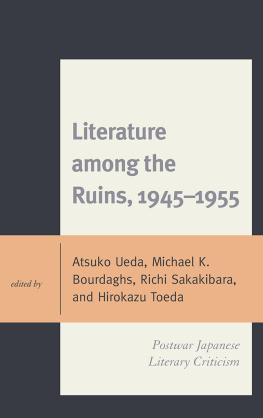
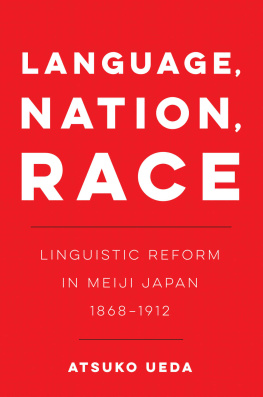
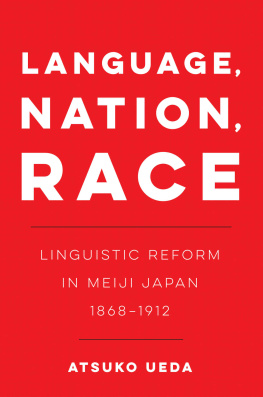

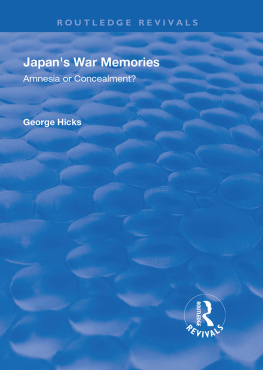
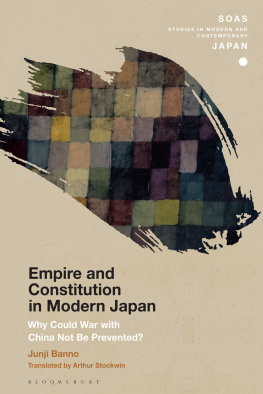
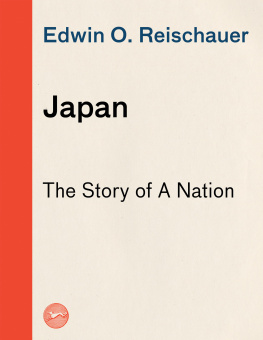
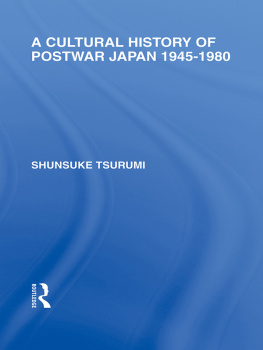
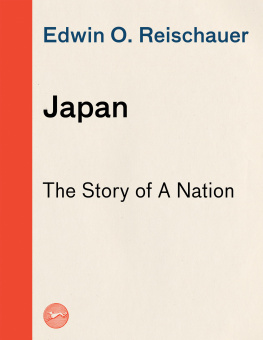
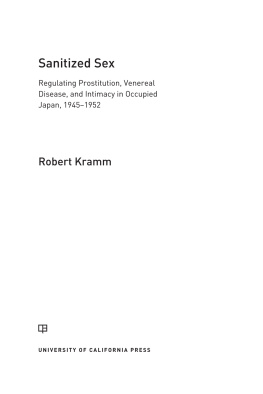

 The paper used in this publication meets the minimum requirements of American National Standard for Information SciencesPermanence of Paper for Printed Library Materials, ANSI/NISO Z39.48-1992.
The paper used in this publication meets the minimum requirements of American National Standard for Information SciencesPermanence of Paper for Printed Library Materials, ANSI/NISO Z39.48-1992.